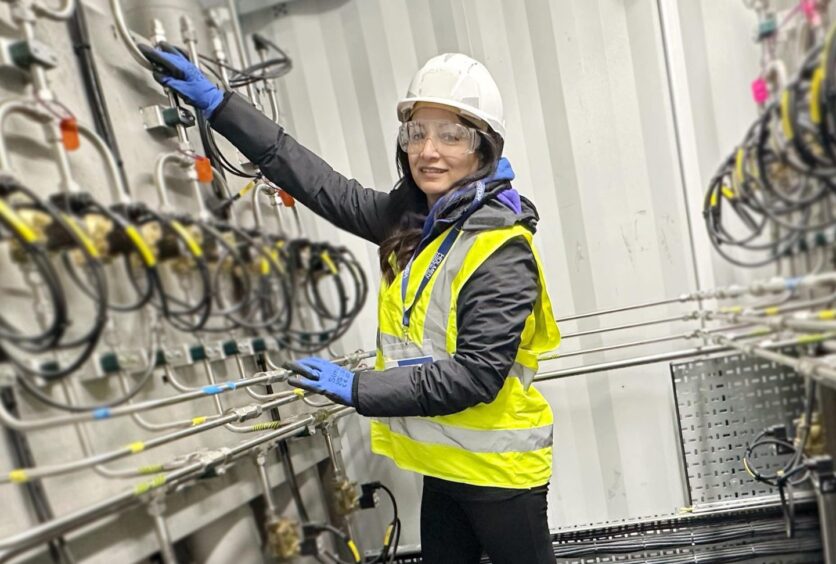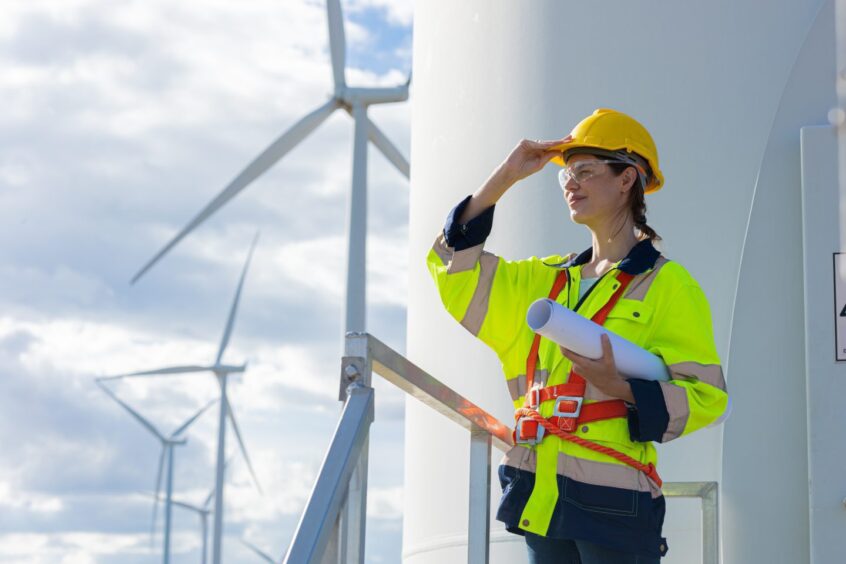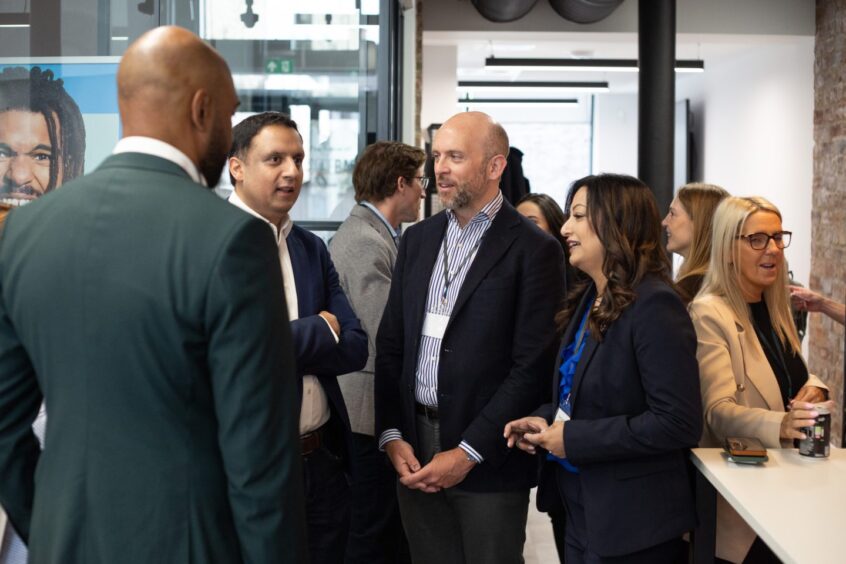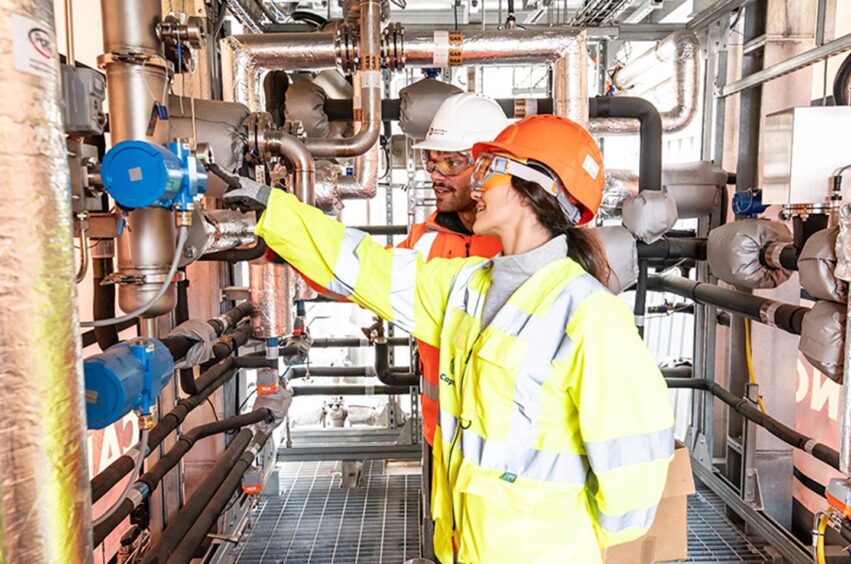Bringing fresh and diverse talent into the UK energy workforce is vital to ensuring a successful transition from oil and gas to renewables.
However, the industry is facing numerous challenges to creating the next generation of energy workers – including identifying them and supporting them on their career journeys.
Bringing new talent in now is even more important as, despite ambitious targets and strong progress in recent months, the UK energy transition is struggling.
To succeed, the energy transition needs to balance declining oil and gas against rising renewables. On the one side, fossil fuel production in the UK is waning as supplies run low, companies leave the North Sea and government policy, such as the energy profit levy (EPL) and Labour’s plans not to issue new licences, makes the region less attractive.
On the other side is a slow rise in renewables. While the most recent auction for new renewable capacity was touted as putting the new energy sector back on track, the reality was more mixed.
Solar was a major winner, adding over 3GW. Onshore wind was sluggish, just missing out on a full gigawatt of power. And while offshore wind brought in over 3.7GW, this is well below the 5.9GW the auction needed to provide contracts to meet the UK’s targets.
The result is a slower than needed energy transition, putting both oil and gas and renewables, and the UK’s energy workforce, at risk.
If fossil fuel jobs disappear without new energy roles to replace them, many people currently working today will be forced to drop out, taking the skills needed to build renewable projects with them.
It’s a challenge CCU International chief executive Beena Sharma is trying to meet through her new venture, IntoNetZero.
But maintaining the workforce is only part of the equation. With the energy transition expected to take years, even decades, many current workers are likely to retire from the industry before many renewables projects come online.
Sharma said: “If we do that alone, we’re not going to have the people that we need to get us to net zero. It’s going to be the same people doing the same thing over and over again.
“The energy transition is not a challenge we’ve had before, so we need to bring that diversity of thought. We need a different way of approaching this and that’s how you get from bringing diverse people in. That is how you get it,” Sharma explained.
Young talent
Getting young people into the energy industry is crucial to filling positions needed to drive the renewable energy revolution.
“We came to the conclusion that a lot of these diverse people from diverse backgrounds were dropping off quite early on,” Sharma said. “Post-school age, when they’re making those decisions about what to do next.”
IntoNetZero is a recently launched non-profit organisation that aims to fill some of the diversity gaps facing the renewable energy industry.
Backed by Shell UK, the group is looking to widen the recruitment base and help people who might never have entered energy build their careers.
Sharma said: “We’re focused on inspiring those individuals to choose energy as a career and then help them navigate through that career journey.”
The group was assisted by consultancy The Giving Department in identifying some of the diversity gaps facing the industry.
Its research found only a few studies explored diversity beyond gender, but what information they had warned that there are only small numbers of people from diverse backgrounds making their way into the energy industry.
“A great deal of work has been on the representation of women in the industry, but there were still underrepresented areas with little research done to understand them,” Sharma said.
“IntoNetZero’s initial work will be to map out exactly which groups and geographical locations we are going to look at. Which colleges do we need to work with and which organisations do we need to partner with?”
Working together
Key to this is developing partnerships with other companies and role models from across the industry.
“Our work has to involve partners,” Sharma said. “There are plenty of people on the employment, education and entrepreneurship sides and all of them are asking where do we find these people? And we’re looking to bridge that gap.
“But we need to be able to partner with those groups that need the people, those that can support them and those that are inspiring those people to consider this as a career.”
While IntoNetZero aims to help all people into the new energy sector, young people are a focus for it.
“They’re the ones at the crossroads, deciding what they want to be doing with their career.”
For many people, especially young people, considering their careers, oil and gas has a considerable image problem. As climate change becomes more of an issue, fossil fuels are seen as contributing to the problem.
“There is a whole generation of people who are becoming very anti-oil and gas,” Sharma observed.
For renewables, however, Sharma has found that it’s becoming more attractive for people seeking to build a career.
“We’re seeing more of an interest because it is purpose-led,” she said. “There is also a generation of people that want to be a part of the solution.
“But they just don’t know how.”
New thinking, new opportunities
While helping people into the industry is one challenge, retaining them is another. Vital to this is laying out clear career paths.
“The challenge that big energy companies have is retaining diverse workers because they need to be able to see those pathways.”
Recent research from the gender diversity initiative POWERful Women found that the number of women in top positions at 80 UK energy companies has seen little progress between 2024 and 2023, with only 29% of all board members being women and only three companies having a female chair of the board.
This suggests that women, along with other people from diverse backgrounds, are struggling to progress through their careers.
“And it’s not that they can’t see the pathways, it’s the question of support and being mentored through the process. This is the problem that we have right now – there are too many barriers.
“That’s really where IntoNetZero comes in. We’re there to hold their hand, to mentor, to support, to guide them. And we are also there to provide new workers through those channels, employment, education, apprenticeships and entrepreneurship.”
She added that the industry also has to realise that there are gaps they need to fill.
“If they act early, they can hopefully bring in some of these people that they need.”
A key part of this is for companies across the energy industry to commit to change. For this to work, it will require thinking differently and changing practices and processes.
“We need to think differently. We’re not doing enough and we’re not doing enough quick,” Sharma said. “Recognise that the way that we’re doing things right now isn’t working.
“And hopefully get the industry as a whole aligned in that commitment, on where we want to be by 2030, 2045, 2050, whatever that might be, and just think about what that alignment looks like and what steps.”
Recommended for you



 © Supplied by CCU International
© Supplied by CCU International © Supplied by Shutterstock
© Supplied by Shutterstock © Supplied by The Giving Departmen
© Supplied by The Giving Departmen © Supplied by C-Capture
© Supplied by C-Capture






